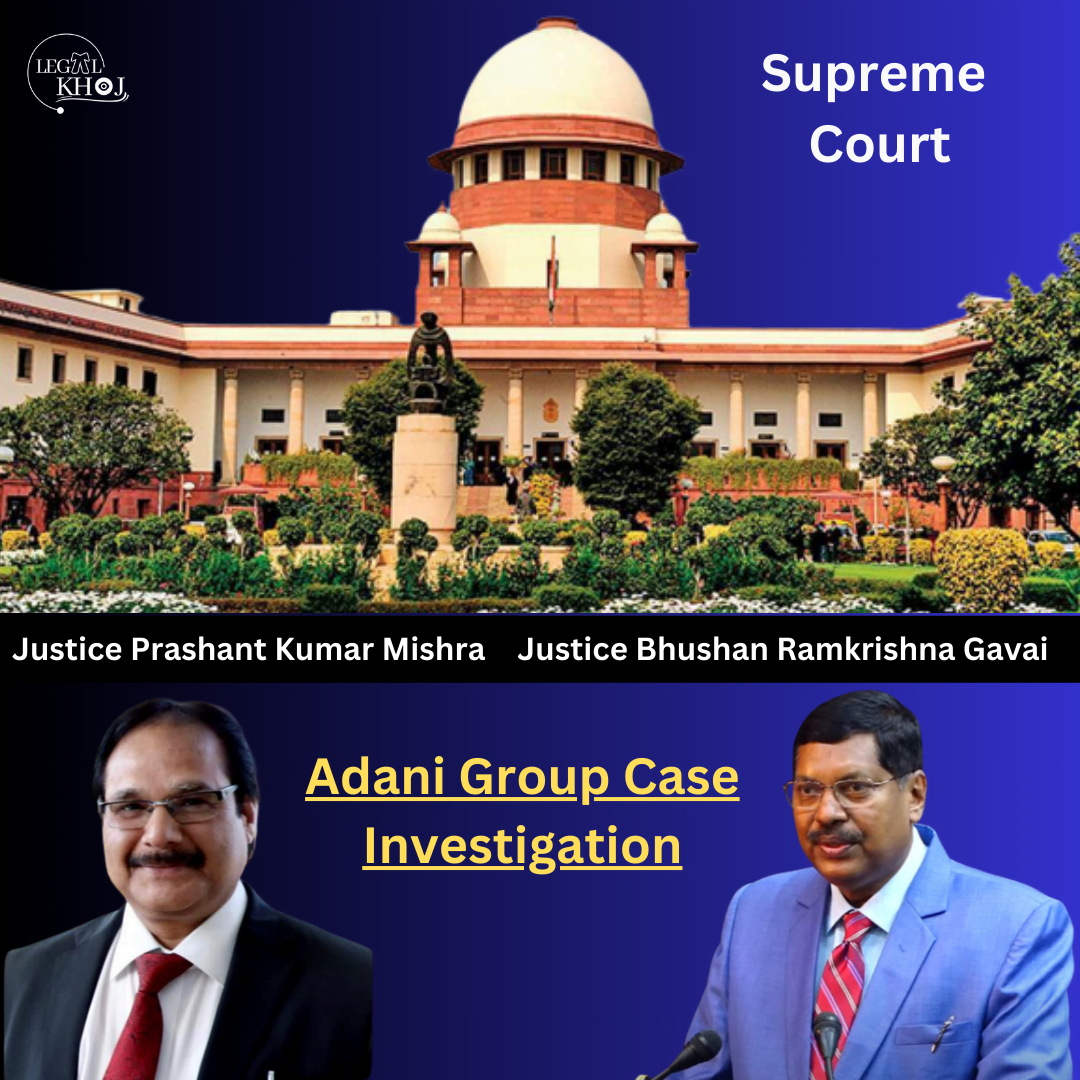Introduction of Legal Case Adani Group Investigation
In a recent legal case, two journalists found themselves in hot water after writing a critical article about the powerful Adani Group. The journalists, who had published their piece on the Organized Crime and Corruption Reporting Project (OCCRP) website, were summoned by the Ahmedabad Crime Branch for questioning regarding their article titled “Documents Provide Fresh Insight Into Allegations of Stock Manipulation That Rocked India’s Powerful Adani Group.” Feeling threatened by the prospect of facing legal consequences, the journalists approached the Supreme Court of India seeking protection against coercive measures by the Crime Branch in Adani Group investigation.
A Division Bench comprising Justice Bhushan Ramkrishna Gavai and Justice Prashant Kumar Mishra heard the journalists’ petitions. After careful consideration, the Bench granted the journalists temporary relief by directing that no coercive steps be taken against Adani Group until the next hearing. This decision offered the journalists some respite from the immediate threat they were facing.
To further delve into the complex situation surrounding the Adani Group, the Supreme Court took additional steps. The Court appointed a committee of experts, led by retired Supreme Court Justice Abhay Manohar Sapre, to assess the regulatory framework aimed at protecting investor interests in India. Additionally, the Securities and Exchange Board of India (SEBI), the country’s regulatory body for securities and commodity markets, was instructed to complete its investigation within two months.
The SEBI, under the directive of the Supreme Court, was tasked with investigating several specific aspects related to the Adani Group. Firstly, they were to determine whether there had been any violation of the minimum public shareholding norms in public limited companies. Secondly, the SEBI was to investigate if there had been a failure to disclose transactions with related parties, a common concern in cases involving corporate misconduct. Lastly, the regulatory body was to examine the possibility of manipulation of stock prices, a serious offense in the financial world.
While these investigations were underway, the journalists found themselves under the scrutiny of the Crime Branch due to their published article. This compelled them to seek legal protection from the Supreme Court, fearing potential repercussions for their work because of Adani Group.
The Supreme Court, recognizing the journalists’ predicament, accepted their petitions and issued notices to the respondents involved in the case of Adani Group. By serving notices, the Court informed the concerned parties about the legal proceedings and ensured their participation in the case.
In a significant move, the Court also granted interim protection to the journalists. This meant that the journalists were safeguarded against any coercive actions by the authorities until the next scheduled hearing. This interim relief provided the journalists with some breathing space, allowing them to focus on presenting their case without the immediate fear of legal consequences.

The Supreme Court’s decision Adani Group Investigation Highlighted
The importance of protecting journalistic freedom and expression, even in the face of powerful entities like the Adani Group. By granting interim relief to the journalists, the Court upheld the fundamental principle of allowing journalists to carry out their work without undue interference or threats to their safety.
This case serves as a reminder of the crucial role the judiciary plays in safeguarding democratic values, including freedom of the press. The Supreme Court’s intervention not only protected the journalists but also reinforced the idea that individuals, regardless of their profession, have the right to express their opinions and concerns without fear of reprisal.
As the legal proceedings continue, the case involving the journalists and the Adani Group will likely set a precedent for how similar situations are handled in the future. It showcases the delicate balance between investigative journalism, corporate interests, and legal scrutiny. Ultimately, the outcome of this case will shape the landscape of press freedom and accountability in India, underscoring the significance of the judiciary in upholding these fundamental democratic principles.
Must Read:- Delhi High Court SARFAESI Act not Independent of RDB Act









Leave a Reply